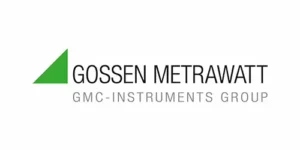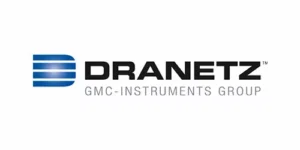An energy audit is an on-site energy consultation conducted by an appropriately trained expert (auditor).
Since the amendment of the Energy Services Act (EDL-G) inApril 2015, so-called non-SMEs (SMEs: micro, small and medium-sized enterprises) have been required to have their energy consumption examined at regular intervals. In principle, the law applies to all enterprises that are not micro-enterprises or small and medium-sized enterprises as defined in the EU recommendation (SMEs).
The following are deemed non-SMEs:
- Companies who have 250 or more full-time employees, or
- Companies who employ fewer than 250 persons but generate annual turnover amounting to more than €50 million and have an annual balance sheet total of more than €43 million, or
- Companies whose capital is, or voting rights are, controlled to an extent of 25% or more by at least one public body or public corporation
Legally required examination is usually fulfilled by means of energy audits. Publicly owned municipal enterprises, as well as institutions that operate predominantly as sovereign bodies such as administrations or courts, and companies which have implemented a certified energy management system in accordance with DIN EN ISO 50001 or an environmental management system in the spirit of Regulation (EC) No. 1221/2009 of the European Parliament and of the Council (EMAS) are exempt from this requirement.
An energy audit must be conducted by qualified, accredited energy auditors no later than four years after completion of the initial audit and every four years thereafter. The date of fulfilment of the first energy audit was 5 December 2015.
Energy audits must meet the following requirements:
- At least 90% of all energy consumption must be examined by the audit.
- The audit must include all of the company’s business units and their facilities.
- The audit must be based on current, continuously or intermittently measured operating data for energy consumption.
- The audit must include an examination of the energy consumption profiles of buildings, operating procedures and transport.
The German Federal Office for Economic Affairs and Export Control (BAFA), which is responsible for operational implementation of the energy services act, has published a List of energy consultants qualified for conducting audits.
- All relevant information concerning energy audits can be found on the BAFA website.
- In 2019 an amendment was made to the EDL-G by means of which the de minimis limit for companies was changed.
EDL-G AMENDMENT: NEW DE MINIMIS LIMIT FOR ENTERPRISES
The German federal government has adopted an amendment to the EDL-G (federal act on energy services and other energy efficiency measures), which may be of interest to smaller companies. The amendment is expected to be passed by the Upper House of the German Parliament on 20 September.
All companies with total energy consumption of less than 500,000 kilowatt hours per year for all energy sources are exempt from the energy audit. The decisive factor is total energy consumption during the period of 12 months prior to the calendar year in which the new energy audit would have to take place – in the current case, calendar year 2018. Affected companies must prove to the German Federal Office for Economic Affairs and Export Control that they do not exceed this limit. This exempts roughly 3500 companies and reduces the costs of compliance for the economy as a whole by more than €5 million.
ENHANCING THE QUALITY OF ENERGY AUDITS
The quality of energy audits must be improved by means of further training for energy auditors at regular intervals. As stipulated by the amended version of the law: “The knowledge required for high-quality energy audits in accordance with DIN 16247-1 must be kept up to date with the current state of the art by means of regular technical training.” However, the draft law includes a three-year transitional period for these training measures.
THE ELECTRONIC ENERGY AUDIT DECLARATION
All affected companies (non-SMEs) must nevertheless submit an electronic energy audit declaration as of immediately – even companies that fall below the de minimis limit, although on a smaller scale.
This mandatory report includes information on the company and the energy auditor, as well as total energy consumption and associated costs broken down by energy source. Further detailed results of the energy audit report must be submitted as well.
Companies that remain below the de minimis limit must on the one hand declare that this is indeed the case and, on the other hand, provide information on total energy consumption as well as costs broken down by energy source.
An extended transitional period is provided for the introductory phase: all companies that conduct their energy audits during the period which begins upon entry into force of the amendment to the law and ends on 31 December 2019 have until 31 March 2020 to submit notification.
FINES
All companies are required to conduct an energy audit (exception: de minimis limit or a fully implemented energy management system in accordance with DIN EN ISO 50001). As in the past, if the obligation to conduct an energy audit is ignored, fines of up to €50,000 may be imposed.


















